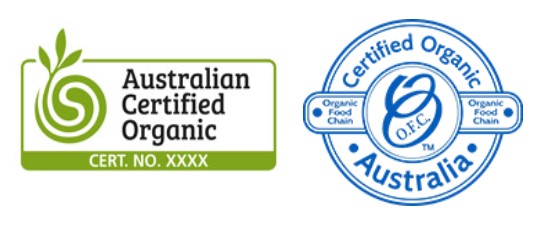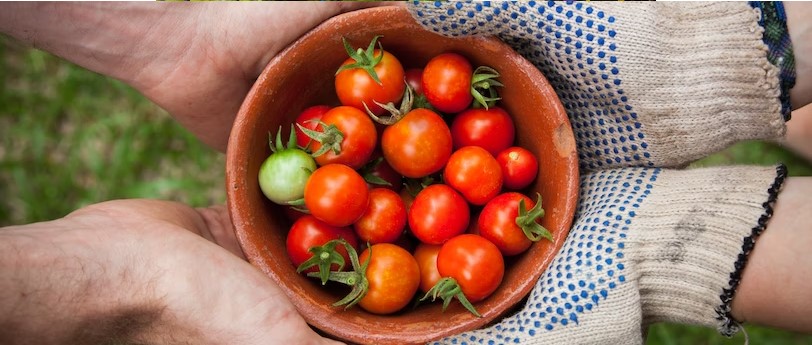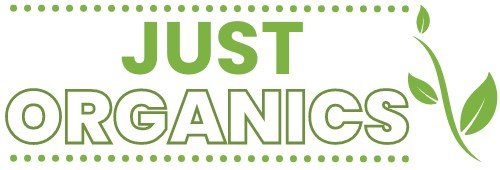So, you walked into an organic store and almost died of shock when an apple had a $2 price tag? You’ve heard that organic food is better for you, but is it worth paying two bucks for an apple? If you can set aside the pricing of organic produce for a minute, there are many reasons to switch away from commercially-grown food.
In this article, I’ll take a look at some of the health benefits of organic food, including why it’s safer for you and why it’s actually packed with more nutrients than its supermarket brothers and sisters. I’ll also go over how organic farming helps the environment and how buying organic produce supports local farming communities. Let’s get into it, so you can decide for yourself whether it’s worth spending a bit extra for your fruit and veg.
Table of Contents
Key Takeaways
- Organic food offers improved health benefits compared to conventionally grown produce.
- Choosing organic food supports environmental sustainability.
- Purchasing organic products supports local farmers and communities.
- Organic food has a higher nutritional value than conventionally grown food.

Health Benefits of Organic Food
There’s no doubt that health is a main reason that folks choose organic produce. People generally have faith that paying more for things should give them a better result. In many cases you’ll be disappointed – that skin care product is probably more expensive only because of the amount of advertising that’s been pumped into it. In truth, it’s the same chemicals packed into flashier packaging and has catchier buzzwords than its supermarket shelf neighbour.
In the case of organic food, studies show that organic food contains more vitamin C, iron, magnesium, and phosphorus than non-organic varieties of the same foods. Let’s take a quick look at how these can help you:
| VITAMIN or MINERAL | HOW DOES IT BENEFIT YOU? |
| Vitamin C | Important for the immune system |
| Iron | Essential for red blood cells, boosts energy, helps in preventing disease |
| Magnesium | Assists the nervous system, regulates your heartbeat |
| Phosphorous | Forms and maintains healthy teeth and bones |
These nutrients are essential for maintaining good health, but non-organic produce has all this too. However, organic food also contains more antioxidants than supermarket equivalents. Antioxidants are found in food and naturally produced in the body to combat excess ‘free radicals’. Free radicals actually benefit your body and help with the immune system or combat bacteria. However, when free radicals build up, they can also cause you harm. This excess, called ‘oxidative stress,’ can be prevented with a healthy amount of antioxidants – I say ‘a healthy amount’ because having too many antioxidants can also be harmful. As with most things related to our bodies, there is a delicate balancing act.
FUN FACT: Not to be confused with ‘New Radicals’, a band in the late ’90s with the hit song ‘You Get What You Give’. As far as we know, antioxidants won’t help if you’ve overdone your intake of these Radicals. We do recommend moderating your intake, just to be on the safe side!
Benefits of Organic Food to Weight Loss
Eating organic foods can also contribute to weight loss. Organic fruits and vegetables are often lower in calories and fat while higher in fibre. Eating foods with more fibre can help you feel fuller for longer, which can help you on your weight-loss journey. And if you feel full, there’s less reason to dip into the snack cupboard!
Trying to lose weight? Organic fruits and vegetables are high in fibre, meaning you feel fuller for longer! This helps to stop those urges to eat, which can lead you back to unhealthy snacks.
Organic Food and its Link To Preventing Cancer
Organic food has been linked to cancer prevention. Pesticides used in conventional farming have been associated with an increased risk of certain cancers, such as breast, prostate, and lymphoma. On the other hand, organic farming practices strictly regulate synthetic pesticides and promote natural pest control methods. This reduces exposure to potentially harmful chemicals and lowers the risk of developing cancer.
Organic versus ‘Certified Organic’
One important note I want to make here is that not all ‘organic’ foods are created equal. For some reason, Australia is one country that doesn’t regulate the use of the term ‘organic’. Basically, this means that there is a real grey area where any organisation can mark their product as ‘organic’.

Australia does have seven organisations that inspect and certify organic commodities and production practices. This is where things get tricky in making decisions on whether a product is really organic. When looking at a product label, you need to look for the wording ‘Certified Organic’ as well as the logo of the organisation that has provided this certification. Below you’ll find a couple of certifying logo examples from Australian Organic and Organic Food Chain.

‘Certified Organic’ Food Doesn’t Contain GMOs
Certified Organic food is free from genetically modified organisms (GMOs). GMOs are plants or animals whose DNA has been altered through genetic engineering techniques.
Pros of GMOs:
- Increased attractiveness to consumers eg. apples and potatoes that are less likely to bruise or turn brown
- Enhanced flavour and nutritional value
- Longer shelf life and, therefore, less waste
- Greater resistance to viruses and other diseases
- Greater tolerance to herbicides, making it easier for farmers to control weeds
Despite these positives, there are plenty of negatives to GMOs. And some of these are doozies.
Cons of GMOs:
- May trigger an allergic reaction
- Can contribute to the development of cancer in the body
- The person eating may develop a resistance to certain antibiotics
- Could affect the immune system and even change DNA in humans
- May impact on the kidney, pancreas and reproductive system
I don’t know about you, but for all those positives, any one of those negatives could have a huge impact on your health. On top of this:
Genetically engineering foods is a relatively new practice, which means the long-term effects on safety are not yet clear.
MEDICAL NEWS TODAY
WOW! No thanks. Suddenly those $2 apples look pretty reasonably priced!
Environmental Sustainability of Organic Farming
One of the key benefits of organic farming is its focus on maintaining and improving soil fertility. Conventional farming use methods that heavily rely on synthetic fertilizers. Organic farmers, on the other hand, use natural techniques that ensure that the agricultural land can continue producing healthy crops for generations to come.
Natural Organic Farming Techniques
Organic farmers use natural practices that help to increase organic matter content in the soil. This improves the ability of the soil to retain water and increases the availability of nutrients for plants. Here are some practices that are used to keep the soil fertile:
- Cover Crops: Planted on fields that are not producing a produce crop, for example, in between growing seasons. They are planted to control weeds and pests, increase biodiversity, and protect the soil from erosion and loss of nutrients.
- Crop Rotation: Planting crops in a sequence on the same piece of land to improve soil health and nutrients, and help prevent weeds and pests. An example of crop rotation: A farmer plants corn, which takes nitrogen from the soil. After harvesting the corn, the farmer plants beans, which return nitrogen to the soil.
- Composting: Introduces microorganisms and nutrients that encourage healthy plant growth. Composting does naturally what conventional farmers do with synthetic fertilizers that can pollute water and harm local wildlife.
- Pest Management: Organic farmers use prevention as their first line of defence. This means that healthy soil produces stronger plants that are more resilient to pests. They can also encourage predators that feast on pests but do not affect the crop.
Is This Why Organic Produce Is More Expensive?
In a nutshell, yes, organic farmers’ practices mean that organic products are more expensive. Below are five reasons that lead to organics being pricey when compared to conventionally-grown produce:
- Using crop rotations means that farmers can’t produce as much product as conventional farmers
- Hand-weeding, cleanup of polluted water and fixing any pesticide contamination is more labour-intensive. This comes at the cost of both time and money.
- More limited crops mean more limited supplies. The laws of supply and demand mean that this translates to higher product cost.
- Organic certification costs an annual fee for inspections and certification
- Crops take longer to grow since no artificial additives, like GMOs, are used to speed up growth
Support for Local Farmers and Communities
Buying from local farmers does more than provide you with healthy food. It also supports those farmers and their communities. It’s hard for any farmer to be well-off financially – a bumper crop can easily be followed by years of drought. By purchasing organic food, you contribute to the economic stability of that farmer. You also show your support for the work they do. I’d imagine it’s far easier for farmers to throw their hands in the air in frustration and give in to the relative ease of farming conventionally. No doubt many have considered going back to pesticides to give them better yields – some probably have and given up on the organic trade. Buying from these farmers shows that you are willing to pay that little bit more for something made in more of the way that nature intended.
Local farms are not the only ones that benefit from your purchases. Organic farming takes more manual work, and this can only be done with people. If a farmer is more economically stable, they can supply work for the local community. And when more people have jobs, they can spend more money, again benefitting the community.
Whether you buy a little or a lot, simply buying organic supports farmers and helps them to keep providing healthy food. Did you ever have a jar that your mum and dad put loose change into when you were a kid? It might only have been ten or twenty cents at a time, but when that jar was full, you were always shocked when it added up to $100 or more. I feel that buying organic is much the same – it might only be a $2 apple that you take away from the next farmers market, but with others also contributing, you make sure that jar is full enough for the farmer to continue their work.
It’s not just delicious and healthy food that we buy, it’s also making sure that we contribute to something sustainable into the future.
Enhanced Flavour of Organic Produce
One of the prime reasons that I switched to organic produce over ten years ago was for the taste. I even remember biting into an apple, the first organic food I bought, and was amazed at how good it tasted. Before that, I was pretty sceptical and wondered whether we were just being taken for a ride. Come on! Two dollars for just one apple? I could get ten apples for the same price at the supermarket! Well, ten years later and I’m now a voice for organic products!
As I’ve already mentioned, certified organically-grown produce is superior to commercially-grown produce in so many ways:
- higher in nutrients
- contain more antioxidants
- free of chemicals and pesticides
- free of those scary GMOs
In addition, we also know that buying their produce helps support the farmers who are doing right by us and the environment in how they grow their crops.
Knowing that the produce tastes great is just the cherry on top! If you haven’t tried organic yet, give it a go. Maybe you’ll be like me – you’ll buy an apple or other fruit from a farmers market, bite into it and never look back.

Reduced Risk of Food Contamination
Although there are a number of reasons for going organic, personally, the number one reason for me switching permanently to organic food is the peace of mind that comes with eating food that I know isn’t contaminated. I think it’s scary to eat food that could potentially harm me. It might not have any effect straight away, but over time it could. The fact that GMOs are being used in mainstream food without knowing what they can do to the body in the long term is mind-boggling.
Without trying to be overly dramatic, I liken it to seeing a piece of food on the ground. I don’t know how it came to be there or who put it there. I don’t know how long it’s been there, but I do wonder why it’s not in the bin that’s only a metre away. But what I know for certain is that I wouldn’t pick it up and eat it. It’s due to these unknowns that I no longer shop at supermarkets – I just don’t know how that produce came to be there.
Speaking of supermarkets, we have an eye-opening article on the Dirty Dozen and Clean Fifteen. These annual lists show the fruits and vegetables that typically have the most and least pesticide residues.
Sure, supermarkets are the easy, convenient option. As humans, we tend to go with things that are more convenient and take the least amount of time. That makes supermarkets so popular. Pricewise too, it’s more expensive to shop organic and many don’t see the point. For me, it comes down to ‘care’ and ‘knowledge’ – there are various combinations of these two factors, but really the only one that makes a person change is having both care and knowledge.

The ‘care’ aspect is something that a person needs to develop themselves – it can’t be forced. But the ‘knowledge’ aspect is the reason I wrote this article. If you’ve taken the time to read through it, I thank you. Hopefully, now you accept that organic food is the better health option. What you do with this knowledge is up to you. I wouldn’t expect anyone to throw out all their food and go straight to the nearest organic store and buy everything they sell.
The only thing I would expect is that I’ve given you food for thought. The rest is up to you.
So, Is it Worth The Investment?
For you and your family, only you can answer this question. Investing in organic food offers a heap of benefits for both your health and the environment. But it really is an investment. There’s no doubt that going organic costs more. It’s also less convenient than going to your local supermarket, so it might even be a time investment for you.
However, next time you see a $2 apple, at least you won’t point at it and scream, ‘These guys are trying to rob us blind!’ Hopefully you’ll take into account that that apple:
- is free of harmful chemicals
- was grown in an environmentally friendly way
- doesn’t contain GMOs
- has more nutrients than a non-organic apple
- won’t give you cancer
- supports the grower
- is pretty well-priced, all things considered!
If this is the case, then this article is a resounding success! If not, feel free to let me know how I failed. Either way, thanks for reading!
About the Author

CHARLIE
Hi, my name is Charlie. I’m the founder of Just Organics. I have a background in Environmental Health and am passionate about animal welfare. I have been using organic products for more than ten years and would like to share my love of products made from nature.
I hope you find value in our articles. If there’s anything you’d like us to write about or if you’d just like to connect with us, feel free to send us a message.
